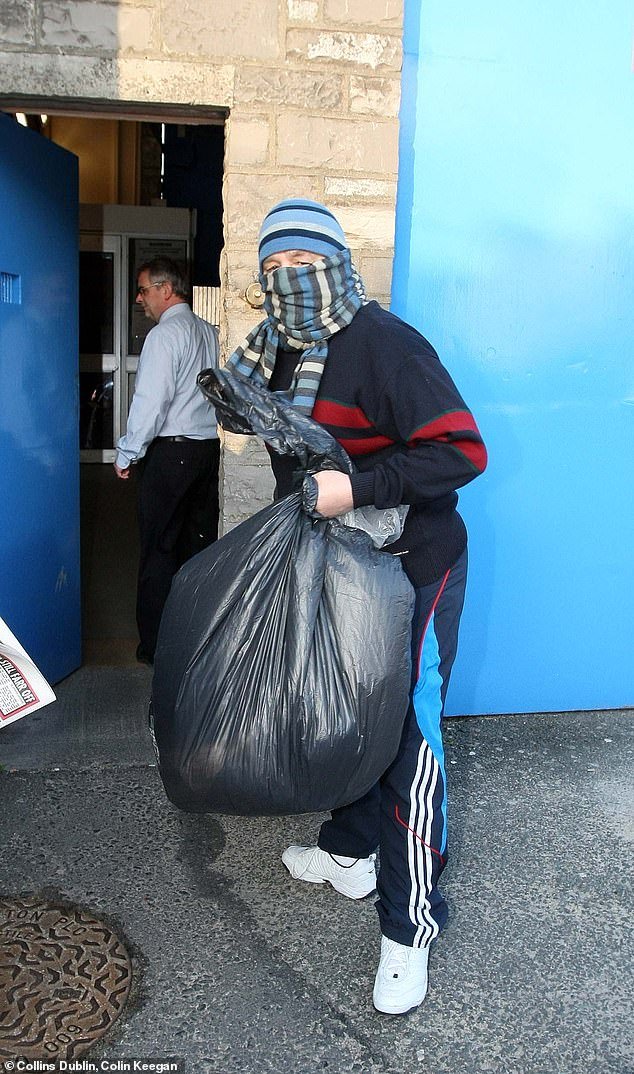Drug dealer ‘King Scum’ considered one of Ireland’s worst criminals for flooding Dublin with heroin in the 1980s and dies of heart attack aged 81
One of Ireland’s most notorious drug dealers, Tony ‘King Scum’ Felloni, has died of a heart attack in Dublin aged 81.
Felloni, born Anthony Carroll, was considered one of the worst criminals in the state’s history for flooding Dublin with heroin in the 1980s.
The high-profile dealer was reportedly HIV positive when he died suddenly on Monday, reports the Irish timesand his death is not considered suspicious.
Felloni was one of the most recognized dealers during the heroin epidemic of the 1980s and remained a key figure in the drug trade for twenty years.
He rose to fame when it was revealed that he was using his children to sell drugs after getting them addicted to heroin to ensure his control over them.
Felloni was considered one of the worst criminals in the state’s history for flooding Dublin with heroin in the 1980s

He died on Monday at the age of 81 of a heart attack in Dublin’s south inner city
His son, Luigi Felloni, was convicted of heroin trafficking in June 1996 and jailed for six years, while daughter Regina was jailed for six years and nine months.
Felloni, who was himself a heroin user, also had a number of convictions for beating his wife and was the first person to receive a life sentence for drug trafficking.
His brutality towards women and his family earned him the infamous nickname ‘King Scrum’.
The father-of-six had kept a low profile since his release from prison in 2011 after being thrown behind bars in June 1996 for heroin trafficking.
While in prison, Felloni was targeted by the Criminal Assets Bureau and the Revenue Commissioners under money laundering legislation – where it was revealed that he had made more than £860,000 from the drugs trade.
But they reportedly seized around £430,000 of his wealth in 2010.
After being jailed in 1996, Felloni served much of his time in Portlaoise Prison in Mountjoy – his final appeal against his sentence was rejected by the court in 1991.

In 1980, Felloni moved to Britain and led a gang of armed robbers before entering the lucrative drug trade.
However, following a series of probation and psychiatric reports carried out on him at the time, it was revealed that the crime boss had become fully institutionalised, was HIV positive and had managed to obtain drugs in prison.
He was unable to care for himself for more than two days.
Originally from Lower Dominick Street – one of the earliest Georgian streets in north Dublin before being swept away and converted into apartments – Felloni began his long career in crime in the 1960s by seducing women while working as domestic servants in large , rich houses worked.
He would develop his relationships with them and gain their trust before taking compromising photos of them, demanding half their wages in exchange for not showing the images to their employers.
Over the years, Felloni has had more than twenty convictions, many of which were for burglary and assault, including against his wife.
After such a conviction in 1980, he moved to Britain, where he began developing contacts with the criminal underworld and led a gang of armed robbers.
But he quickly outgrew his position as a gang leader and wormed his way into the more lucrative field of drug trafficking.
Felloni was arrested in Surrey in 1981 and sentenced to four years in prison for conspiracy to import heroin.
On his return to Ireland in 1984, he began to take the drug trade more seriously – and although he never earned the title of top operator, he became known as one of the few major dealers selling heroin on the streets.
Felloni also ran a professional shoplifting gang in central Dublin.
He was sentenced to ten years in prison in July 1986 and to twenty years in prison ten years later.
Felloni only served 15 years of that sentence, after remission was taken into account.
